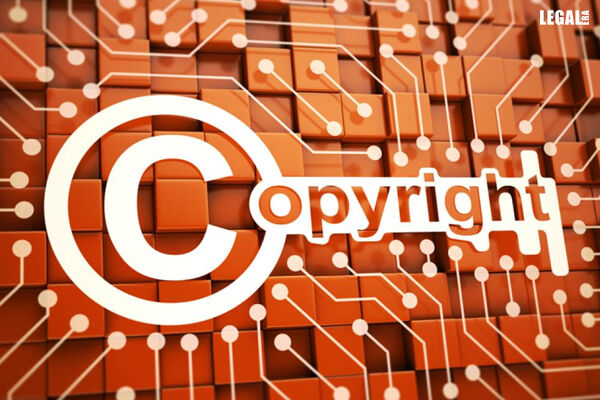
Settlement Reached Between Major Record Labels and the Internet Archive in Copyright Lawsuit
“Court pauses case as UMG and the Internet Archive resolve copyright dispute over free music streaming”
In a significant development in the music and digital preservation industries, Universal Music Group, Sony Music, and other major record labels have announced a settlement with the nonprofit Internet Archive over a copyright lawsuit. This lawsuit, filed in 2023, centred on the Archive’s digitization and streaming of vintage vinyl records, which the labels claimed violated their copyright rights. The resolution of this dispute has prompted both parties to request a pause in the legal proceedings while certain settlement terms are fulfilled. The terms of the settlement remain confidential.
Background of the Dispute
The origins of the lawsuit trace back to the Internet Archive’s Great 78 Project, which aimed to preserve fragile 78-rpm records by digitizing them for future generations to access and study. The nonprofit, based in San Francisco, views itself as a digital library dedicated to providing universal access to knowledge. Through its project, the Archive solicited donations of old and fragile 78-rpm records, which were then digitized and made available online for free. While the Archive claims that its initiative serves to protect cultural heritage and educational resources, the record labels took issue with the project. In their lawsuit, they accused the Internet Archive of operating as an “illegal record store” by offering free access to thousands of songs, including those by iconic artists like Frank Sinatra, Ella Fitzgerald, Miles Davis, and Billie Holiday. In total, the Archive had made over 4,000 songs available through the project. The labels contended that the Internet Archive’s actions infringed upon their copyright, denying them revenue from these copyrighted works. In response, the Archive argued that its activities were protected under the fair use doctrine, which permits certain uses of copyrighted works without authorization if they serve educational or transformative purposes.
Legal Challenges and Ruling
The lawsuit, titled UMG Recordings Inc v. Internet Archive (Case No. 3:23-cv-06522), was filed in the U.S. District Court for the Northern District of California. Last year, U.S. District Judge Maxine Chesney ruled against the Internet Archive’s motion to dismiss some of the claims on the grounds of statute of limitations. This decision signalled the seriousness of the case and the likelihood that the Archive would face significant legal hurdles moving forward. The situation grew more complex when the Internet Archive lost a separate legal battle with major book publishers over its digital book-lending program, which was similarly accused of infringing copyrights. These ongoing legal struggles have made the Archive particularly cautious in navigating its digitization efforts in the face of growing opposition from copyright holders.
The Settlement
According to a joint filing made by the parties involved on Monday, Universal Music Group, Sony Music, and the other labels have reached an agreement with the Internet Archive. While the specific details of the settlement remain undisclosed, the parties have requested the court to pause the proceedings while both sides fulfil certain terms. This development signals the possibility of a resolution that avoids prolonged litigation, which could have had wide-reaching implications for digital preservation and copyright law. Though the settlement terms are confidential, the pause in the case reflects an acknowledgment of the complexities and potential risks of continuing litigation. Both the labels and the Internet Archive are likely keen on avoiding a protracted court battle that could result in unfavourable precedent for either side.
Implications for Digital Archives and Copyright Law
This settlement brings into focus the broader tension between copyright enforcement and the digital preservation of cultural artifacts. The case highlights the challenges nonprofits and libraries face when digitizing materials that are still under copyright protection. The use of digital archives and online platforms for the preservation and dissemination of historical materials has long been a subject of debate in the legal world. On one hand, digital libraries such as the Internet Archive argue that their work serves a public good by providing access to materials that might otherwise be lost or inaccessible. On the other hand, copyright holders maintain that the unauthorized use of their intellectual property—whether for profit or not—undermines their economic rights and the integrity of the music industry. The settlement, while confidential, may pave the way for clearer guidelines on how institutions like the Internet Archive can operate in a way that balances the interests of copyright owners with the need for digital preservation. Future cases may draw on this outcome to address similar conflicts in other areas of intellectual property law, including books, films, and other media.
Legal Representation
Representing the plaintiffs, the record labels, were Matthew Oppenheim and Corey Miller from Oppenheim + Zebrak, as well as Noel Cook from Hanson Bridgett, and Jacob Tracer from the Recording Industry Association of America (RIAA). The Internet Archive was represented by Andrew Gass, Joseph Wetzel, and Allison Stillman of Latham & Watkins. As the case enters a new phase with the settlement, it brings to the fore critical questions about the intersection of copyright law and digital preservation. While the details of the settlement remain sealed, the resolution of this lawsuit may influence how future cases involving digital archives are handled, especially in terms of defining the boundaries of fair use and protecting both the interests of copyright holders and the mission of digital cultural preservation. This case serves as a reminder that as digital technologies evolve, so too must the laws that govern them, particularly in the realm of copyright, where traditional frameworks struggle to keep pace with innovation and the evolving needs of society.